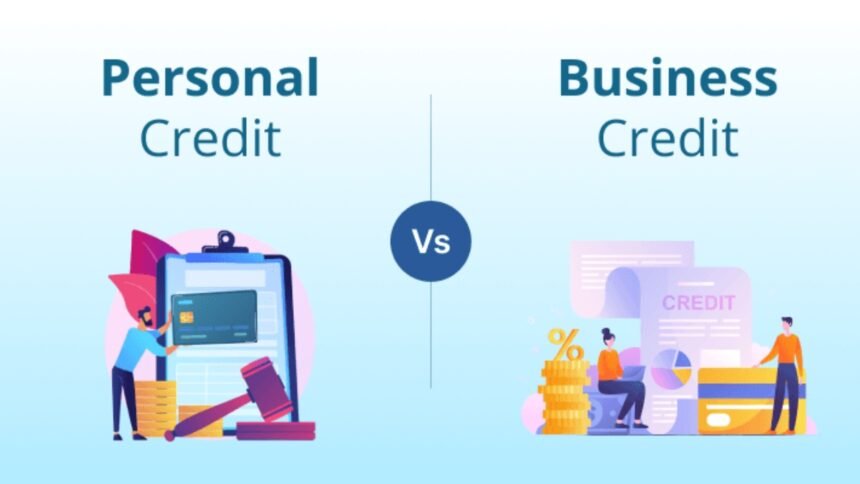Building business credit is a crucial aspect of running a successful business. It provides the flexibility to secure funding, improve your business’s credibility, and protect your personal finances. Many business owners, especially those just starting, have concerns about using their personal credit when applying for business loans or credit lines. However, how to build business credit without using personal credit is not only possible but essential for long-term growth. In this blog, we will explore the best strategies to help you develop business credit on its own, without impacting your personal financial situation.
What is Business Credit and Why is It Important?
Before diving into the methods for building business credit, it’s important to understand exactly what business credit is and why it matters.
Business credit is a separate credit profile and score assigned to your business. Unlike personal credit, it is not tied to your individual financial history. Business credit is built through trade lines, loans, and credit accounts reported to business credit bureaus. Having strong business credit opens up opportunities for securing larger lines of credit, lower interest rates, and better payment terms from vendors and suppliers.
Not only does good business credit help your company grow, but it also protects your personal assets. By keeping business finances separate from personal finances, you reduce the risk of your personal credit being affected by business-related financial issues.
How to Build Business Credit Without Using Personal Credit
1. Form a Business and Obtain an Employer Identification Number (EIN)
The first step in building business credit is to establish your business as a legal entity. Registering your business as a corporation or limited liability company (LLC) separates your business from your personal finances.
After establishing your business entity, apply for an Employer Identification Number (EIN) from the IRS. This unique identifier is essential for opening business bank accounts and applying for business credit. The EIN helps ensure that your business is treated as a separate financial entity, and it keeps your personal credit out of the picture.
2. Open a Business Bank Account
Once you’ve set up your business, it’s time to open a dedicated business bank account. This step is crucial for separating your personal and business finances. By using this account exclusively for business transactions, you establish a clear financial boundary.
A business bank account also provides a foundation for building your business credit. Regular deposits and on-time bill payments will positively impact your business credit profile. Be sure to choose a bank that reports to business credit bureaus, so your financial activity is recorded and reflected in your business’s credit history.
3. Develop Supplier and Vendor Relationships
One of the best ways to build business credit is by establishing relationships with suppliers and vendors who report payment history to business credit bureaus. This means that the payments you make for goods or services are tracked and added to your business credit profile.
Initially, suppliers may require upfront payments or more stringent terms. However, over time, as your relationship grows, they may extend credit lines that you can use for future purchases. By making timely payments, you build a positive payment history that strengthens your business credit.
4. Obtain a Business Credit Card
A business credit card is one of the easiest ways to start building business credit. Unlike personal credit cards, a business credit card reports to business credit bureaus and helps you establish your business’s creditworthiness. Many business credit cards offer higher credit limits than personal cards, which allows you to keep your personal and business finances separate.
It’s important to use your business credit card responsibly. Pay off the balance each month and try to use less than half of your available credit. Consistent use and timely payments will help you build a strong business credit history.
5. Monitor Your Credit and Challenge Errors
As you work on building business credit, it’s important to keep an eye on your credit profile. The major business credit bureaus, such as Dun & Bradstreet, Experian Business, and Equifax Business, provide credit reports for your business. Regularly checking your report ensures that any errors or discrepancies are addressed promptly.
If you notice any mistakes, you can dispute them with the credit bureau. It’s also helpful to work with a credit expert who can guide you through the process and ensure that your business credit is built accurately and efficiently.
The Value of Patience in Developing Business Credit: Expert Opinion
Building business credit takes time, and as financial expert Samantha Wright points out, “Building business credit is never a one-night achievement. It requires patience, hard work, and time. But the rewards are great, especially if you want to maintain financial independence from your personal credit.”
Wright suggests that you start building business credit as early as possible. While the process may not yield immediate results, staying consistent with your payments and financial practices will lead to better opportunities down the road.
Reasons Why You Need to Build Business Credit Separately from Personal Credit
There are numerous benefits to establishing business credit without relying on personal credit. One of the primary reasons is that it protects your personal credit from business-related financial issues. If your business defaults on a loan or faces difficulties managing debt, your personal credit will remain unaffected, as long as your business credit is separate.
Additionally, having strong business credit gives you access to larger loans and credit lines. Banks and lenders are more likely to offer favorable terms to businesses with a solid credit history, especially when personal credit is not involved. This makes it easier for your business to grow and thrive without relying on your personal financial resources.
Finally, using business credit responsibly helps establish a positive reputation in your industry. It shows vendors, partners, and clients that your business is financially stable and capable of managing its finances independently.
How Long Does It Take to Build Business Credit?
Building business credit is not an instant process. On average, it takes between three to six months to establish a credit profile with the major bureaus. However, the timeline can vary based on how quickly you start using credit and establishing trade lines with suppliers. The more proactive you are in managing payments and building relationships, the sooner your business credit will reflect your efforts.
While six months is a typical timeframe, it’s important to remain patient and consistent. Some businesses may take longer to establish a strong credit history, but the key is to stay on track and focus on maintaining separate financial identities for both your personal and business finances.
Conclusion: Start Building Business Credit Today
Building business credit without using personal credit is a smart and strategic decision for any business owner. By forming your business entity, opening a business bank account, working with vendors, using a business credit card, and monitoring your credit, you can create a strong foundation for your business’s financial success.
Remember, building business credit takes time and requires a thoughtful, well-planned approach. Stay patient, make timely payments, and focus on developing a separate financial identity for your business. Over time, you’ll see the benefits of having a solid business credit profile, and your business will be well-positioned for growth and success.
By following the steps outlined in this blog, you can confidently build business credit without touching your personal credit. Take action today, and set your business on the path to financial independence and prosperity.






